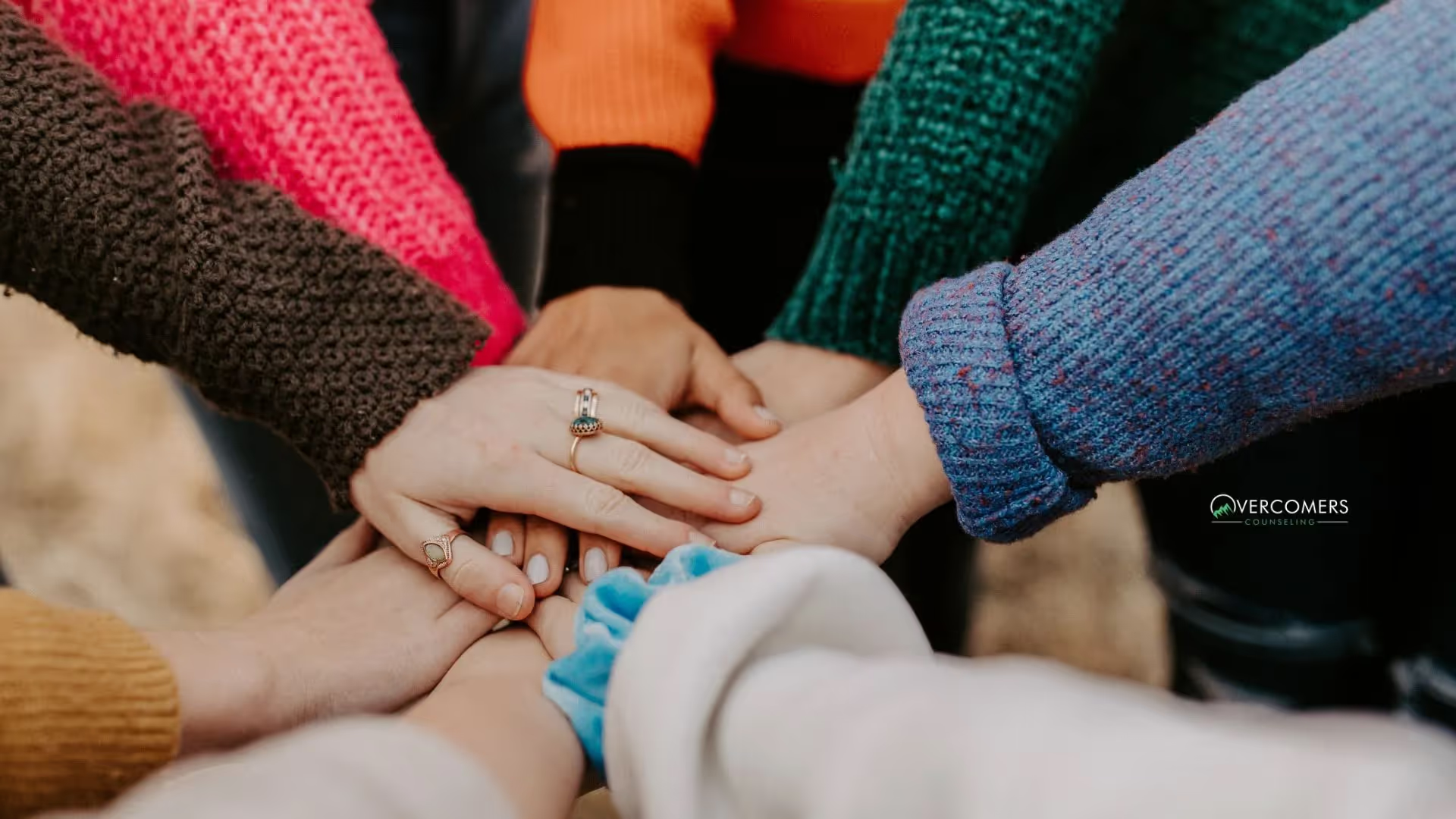At first, the idea of healing with a support group might seem intimidating. Who wants to share their story with strangers? The reality is that a group of...

At first, the idea of healing with a support group might seem intimidating.
Who wants to share their story with strangers?
The reality is that a group of people led by a psychologist can be very beneficial.
Support groups focus on how they can help each other and how to live each day feeling better than yesterday.
In the instance that you are suffering from the loss of a loved one, grief support groups can be very beneficial.
One advantage of healing with a support group is that it makes you feel like you are not alone.
People often say that after their first meeting, they no longer feel alone or judged.
They are glad to meet other people in the group who are facing the same problems.
Another advantage of healing with a support group is learning to express yourself by hearing other people's experiences with similar issues.
Being part of a group improves one's communication and social skills.
In time, you gradually regain your confidence in your ability to socialize with others.
Below are more benefits of healing with a support group.
Dealing with a mental health issue or grief can bring about feelings of isolation and loneliness.
This is because it is very easy to feel like no one else can understand your pain or how you are feeling.
It can be helpful on the road to recovery and in dealing with adversity to surround yourself with people you view as equals and with whom you share experiences.
It's fascinating to hear people talk about the first time they attended a support group.
Until they find a support group, they often feel alone in their struggles.
As time goes on, they are taken aback to learn that everyone else in the group has experienced the same or similar problems.
Learning that others share similar worries and are willing to lend support is often a welcome one, especially if it comes as a revelation for the first time in one's life.

You will find that you are able to discuss your emotions more freely after joining a group.
This openness is beneficial to the process of your healing.
The path to recovery begins with an acknowledgment and expression of one's feelings about one's current situation.
Once you know you are not alone and you are in a safe and supportive place, you will feel more comfortable talking to the group about your feelings and experiences.
Having others listen to you without passing judgment and praising your openness and courage can be a very therapeutic and healing experience.
Many people who are part of support groups often express a sense of relief.
Developing meaningful, supportive relationships with other people is an essential part of healing with a support group.

While you certainly stand to gain something from your time spent in a group, you also have the opportunity to aid your fellow members in their development.
People around you will benefit from hearing about your experiences and achievements and also your genuine kindness and compassion towards them.
When you help another person, you'll notice that you feel better, too.
Numerous support groups will state explicitly that helping others is a central component of their mission.
When you reach a point of satisfaction with your own progress, it's time to think about how you can use that feeling to benefit others as well.
That said, you're under no obligation to participate if you don't feel up to it.
However, you can be of service by providing the necessary moral support to those around you.
Helping others will make you feel good about yourself, too.
You might feel the need to isolate yourself from people if you mourn for an extended period of time.
You will have the opportunity to practice your social skills with others in a more effective manner if you get together with other members of the group and discuss.
Therefore, being part of a group enables you to improve your ability to communicate and engage in conversation with other people.
You eventually recover your previous level of ease when interacting with a large group of people.
It is normal for people to withdraw from social situations when they are grieving or suffering from an illness.
Support groups offer a secure environment in which individuals can gradually reacclimate themselves to being in the company of others.
Participating in a group setting allows you to broaden your horizons and appreciate the things in your life that you may take for granted.
Having a regularly scheduled group session gives you something to work into your routine.
Maintaining a regular routine is crucial to your successful rehabilitation.
Through routines, you build yourself while also learning more about your abilities.
By refining your ability to deal with adversity, you can learn more about who you are and how to meet your needs and express your individuality.
You can learn more about what you've been doing wrong and what strategies might help you succeed in the future.
Having a community of people who can lean on and support one another can be a great source of strength, self-assurance, and renewed meaning in life.
The blind spots that may be impeding your ability to overcome your issues can be revealed in support group discussions.
Being part of a group can help you stay on track to achieve your objectives.
You should try out a grief support group if you haven't already.
Inquire with your doctor or other members of more established support groups for suggestions.
It takes time to settle in and feel at home in a new group, so plan to attend at least a few meetings.
Learning how to cope with your problems allows you to understand yourself and your unique characteristics better.
A better understanding of yourself can help you move one step closer to your goals.
Some advantages of healing with a support group are that: you don't feel alone, you can express your feelings, you are given the opportunity to help others, improved social skills, and increased self-understanding.
https://mentalhealth.ie/blog/the-benefits-of-joining-a-support-group-for-your-mental-health
https://highlandspringsclinic.org/the-benefits-and-importance-of-a-support-system/
https://kentuckycounselingcenter.com/advantages-of-support-groups-and-why-you-should-join-one/
http://davidsusman.com/2015/04/23/9-benefits-of-support-groups/
https://bethesdahealth.org/blog/2017/07/21/healing-grief-benefits-support-groups/
https://www.wellnesswecare.com/blog/goal-and-benefits-of-support-group
If you find yourself having difficulty managing daily activities due to lingering feelings associated with grief such as sadness, anger, guilt or numbness; then it might be beneficial for you to seek professional help through our Colorado Springs Grief Counseling services. Our therapists are trained in helping clients identify their needs and goals related to grieving.
There is no "right" or "wrong" answer when it comes to how long grief will last in the elderly. For some people, the grieving process may last for several months or even years. For others, it may come in waves – they may have periods of intense grief followed by periods of relative calm. It's important to remember that everyone grieves in their own way and at their own pace.
Ignoring grief can exacerbate symptoms and make it more challenging to manage over time. This can result in a negative impact on your personal, professional, and social life, leading to feelings of isolation, chronic sadness, and even physical health complications.
Complicated grief, also known as prolonged grief disorder, is when intense grief symptoms continue for an extended period, often longer than six months. This type of grief can result in difficulty resuming normal life activities and can lead to sleep problems.
We offer a variety of specialized services, including individual therapy, group therapy, and various therapeutic approaches such as cognitive-behavioral therapy (CBT) or psychodynamic therapy.
Yes, we provide supportive counseling for family members who are struggling with the loss of a loved one. Our compassionate therapists can help you gain insight into your feelings and provide constructive strategies to cope with the pain of bereavement.